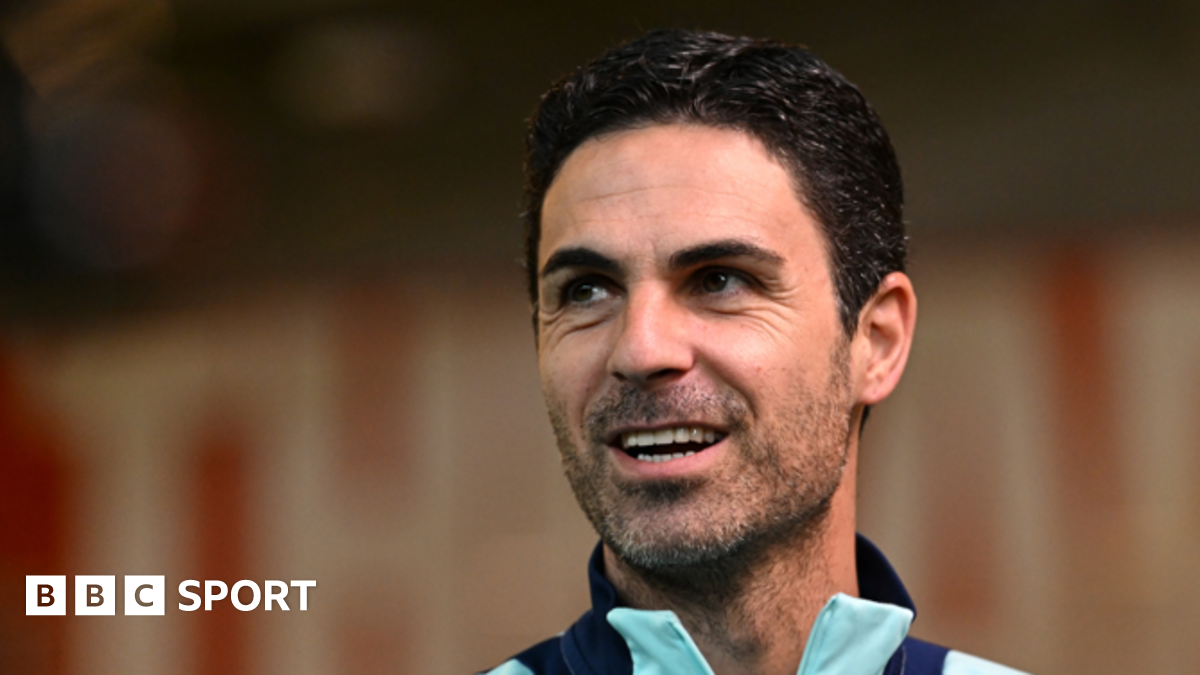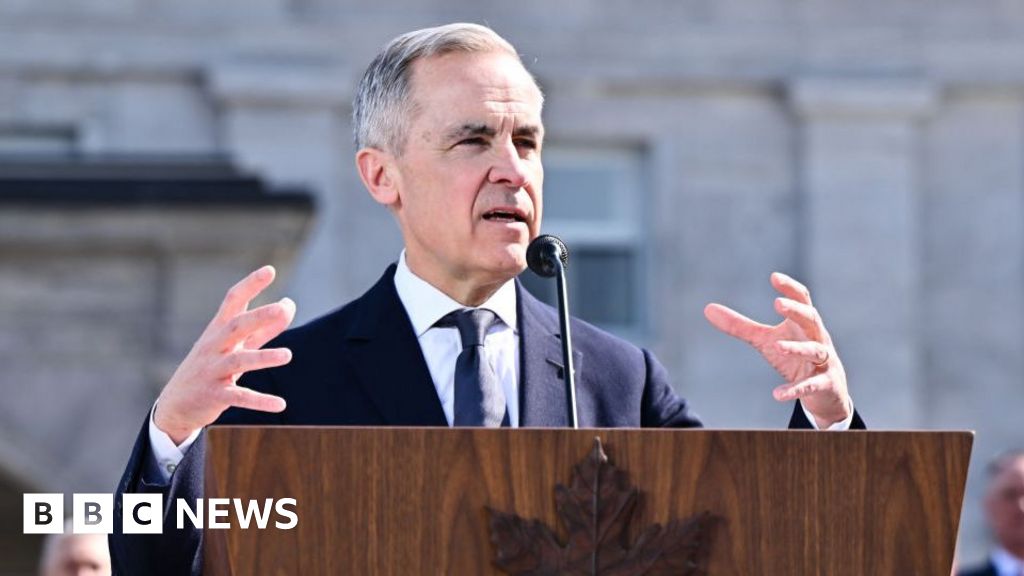
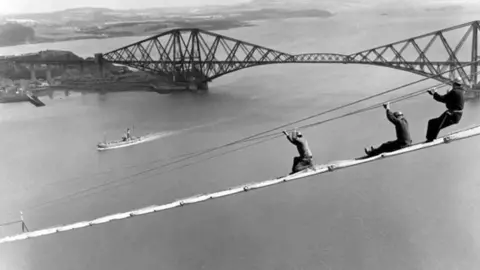 Bear Scotland
Bear Scotland
Seven people died during the construction of the Forth Road Bridge which, like the rail bridge, spans the Firth of Forth
It is exactly 60 years since the late Queen Elizabeth II opened one of the most recognisable man-made landmarks in Scotland - the Forth Road Bridge.
For the first time it enabled motorists, cyclists and pedestrians to easily travel between Fife and Edinburgh, replacing a centuries-old ferry service.
But seven years ago it was replaced by a newer bridge - the Queensferry Crossing - leading to questions about the future of the old road bridge.
Now one expert has told BBC Scotland News he expects the bridge will comfortably exceed its 120 year life span.
When the Forth Road Bridge was built, the 1.5 mile (2.4km) structure across the Firth of Forth was the longest suspension bridge outside of the United States.
As the volume and weight of modern vehicles increased, the £1.34bn Queensferry Crossing was built to take the burden.
Today the Forth Road Bridge is used by local buses, cyclists and pedestrians, while cars, vans and lorries use the new crossing.
David Bishop, BEAR Scotland's south east unit bridges manager, said the Forth Road Bridge was originally designed to last 120 years.
"The bridge has worked hard over the years, connecting communities in Fife and Lothian while carrying a significantly greater weight and volume of traffic than it was originally designed for," he added.
But since traffic was diverted on to the Queensferry Crossing in 2017, regular significant maintenance has been carried out on the older structure.

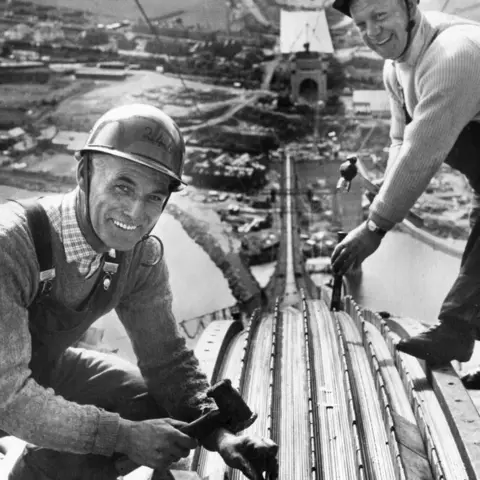 Getty Images
Getty Images
The Forth Road Bridge could still be standing well beyond the year 2084

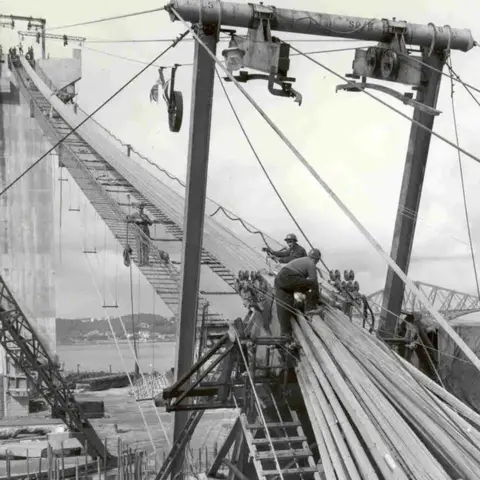 Bear Scotland
Bear Scotland
It took seven years to build the Forth Road Bridge
"Essential maintenance has been successfully carried out to prevent deterioration of the main cables and other key structural components to ensure the future structural integrity of the bridge," Mr Bishop said.
And now there has been so much work done on it experts say it is likely to outlast its proposed 120 years.
Mr Bishop, said: "With a continued maintenance regime, the Forth Road Bridge can comfortably surpass its original design life of 120 years."
That means it could still be standing well beyond the year 2084.
Mr Bishop added: "We're delighted to be celebrating 60 years of the Forth Road Bridge.
"This is still one of the world's most significant long span suspension bridges and it's an honour for us as engineers to be responsible for maintaining it."

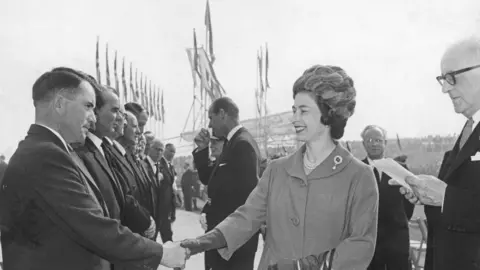 Getty Images
Getty Images
The Queen officially opened the Forth Road Bridge on 4 September 1964

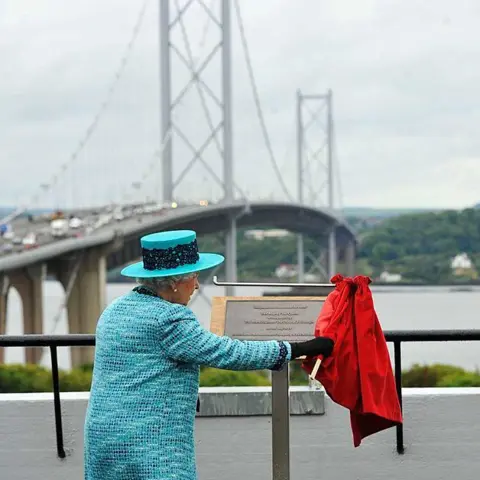 Getty Images
Getty Images
She returned to Edinburgh to mark the 50th anniversary of the bridge
The Forth Road Bridge was officially opened by the late Queen on 4 September 1964.
Nearly 40,000 tonnes of steel and 125,000 cubic metres of concrete went into the bridge's construction.
By August 1962, 30,000 miles of high-tensile steel wires had been spun together to make up the main cables.
The final box girders were swung into place at the end of 1963, covered in the Union Flag and Lion Rampant to mark the occasion.
The final bill for the construction - which took seven years - was £19.5m.
For many years drivers had to pay a toll to cross the bridge, to cover the cost of its construction and ongoing maintenance.
The tolls were finally scrapped in 2008.
At its peak, the bridge carried about 65,000 vehicles a day.
But one of the problems with the Forth Road Bridge was it was often closed due to high winds.
So the Queensferry Crossing was fitted with 3.5m-high baffle barriers to break up and deflect gusts of wind.
Mr Bishop added: "We look forward to the next 60 years and beyond where we expect public transport to play an increasing role in our future."

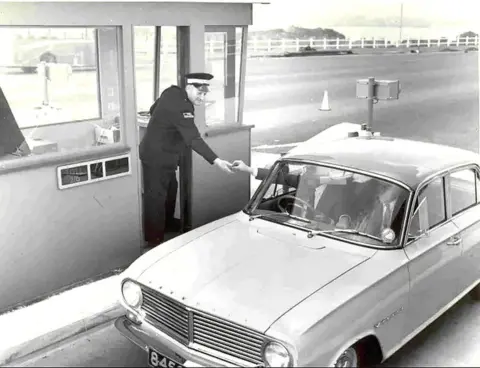 Bear Scotland
Bear Scotland
The tolls were finally scrapped in 2008
Cabinet Secretary for Transport Fiona Hyslop said: "The Forth Road Bridge has long been part of landscape along the River Forth and it is fitting that we mark its 60 years of service.
"While the Forth Road Bridge now plays a different role than it did 60 years ago, it still provides important resilience as a public transport corridor.
"I look forward to seeing it continue this important role for years to come."

 6 months ago
16
6 months ago
16




